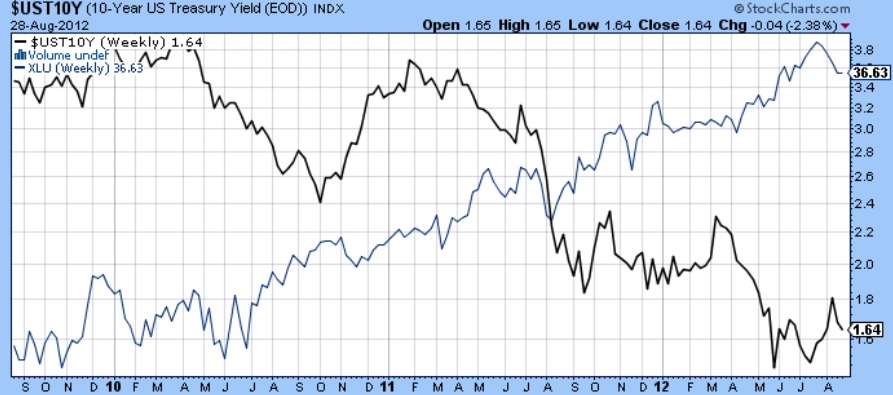It has been a great year for stock investors with the S&P 500 on track for a nearly 30% gain. Yet if investors are diversified properly they likely have some losers in their portfolio, and it’s important to do some tax-loss harvesting as 2013 winds down.
There is still time before the end of the year to do some financial planning to minimize your tax bill, and this year that’s especially critical after such a big rally in U.S. stocks.
Consider the big tax code changes this year. As Fidelity points out:
-
The highest tax rate on long-term capital gains increased to 20% from 15%;
-
A new 3.8% Medicare surtax for high-income taxpayers pushed the highest effective long-term capital gains tax to 23.8%.
-
The top tax bracket is now 39.6% for ordinary income, nonqualified dividends, and short-term capital gains. The previous top rate was 35%. With the Medicare surtax, the effective rate can now be as high as 43.4%.
Source: Fidelity.com
With those kinds of numbers, high-income earners face a real gauntlet. Uncle Sam can take a big bite out your portfolio if you are not vigilant. One way to limit the pain is through tax-loss harvesting—that is, selling losing investments to reduce the tax liability on capital gains on winning investments.
Consider this example from the folks at BlackRock’s iShares group: Imagine a $10,000 five-year investment assuming an annual return of 4% at current tax rates. By year five, that investment would be worth $15,297. Of that, the tax hit would be about $5,738.
Blackrock advises investors to check if their mutual funds or ETFs are making capital gain distributions this month. If the fund has already delivered handsome returns, it might make sense to sell before that capital gain distribution to lower your tax bill.
In addition, this is the time to take losses to offset gains in other parts of one’s portfolio.
Source: BlackRock
Recognizing capital losses—that is, selling an investment below the purchase prices—is one of the smartest deductions an investor can receive. Though you can only get back a percentage of that loss from the government, you can deduct any expenses you incur to sell the proceeds.
According to Kay Bell at Bankrate.com, the IRS requires investors to fill out Form 8949 and Schedule D, and sort losses into categories like short-term and long-term. The value of the deductible loss depends on how the loss is applied, and consulting a financial advisor or tax attorney about the nuances is probably a wise move. Yet for the sake of argument, here’s an example that Bell uses:
If you have a net short-term loss of $1,000 and a net long-term gain of $1,200, then you’ll pay tax on only $200. If there’s still a loss, you can deduct up to $3,000 from other income. If you had a really bad year and ended up with a net loss of more than $3,000, you can carry forward the leftover portion to future years’ taxes. The unused loss can be applied to future gains as well as up to $3,000 of earned income.
Tax-loss harvesting does have some limitations. The IRS does frown on dumping a stock for tax purposes—and then quickly turning around and buying it back, a so-called wash sale. U.S. tax authorities require that you wait at least 30 days before repurchasing a “substantially identical” security.
However, as Forbes.com contributor James Cahn points out, investors can sell a stock for tax purposes then buy similar companies in the same sector. The wash-sale rule also applies across your taxable portfolio. “This means if you sell individual holdings of Microsoft, you cannot buy another block for your IRA without waiting until 30 days after the sale,” according to Cahn.
The bottom line is that investors should take advantage of any losses in their portfolios in a great year for stocks to lessen the tax hit in April.
Photo Credit: StockMonkeys.com
DISCLAIMER: The information contained in this article is general in nature and not intended as specific advice. Neither Covestor Limited nor its representatives are engaged in rendering tax, accounting or legal advice. A qualified professional should be consulted regarding the effect of such considerations on the matters covered in this article.




